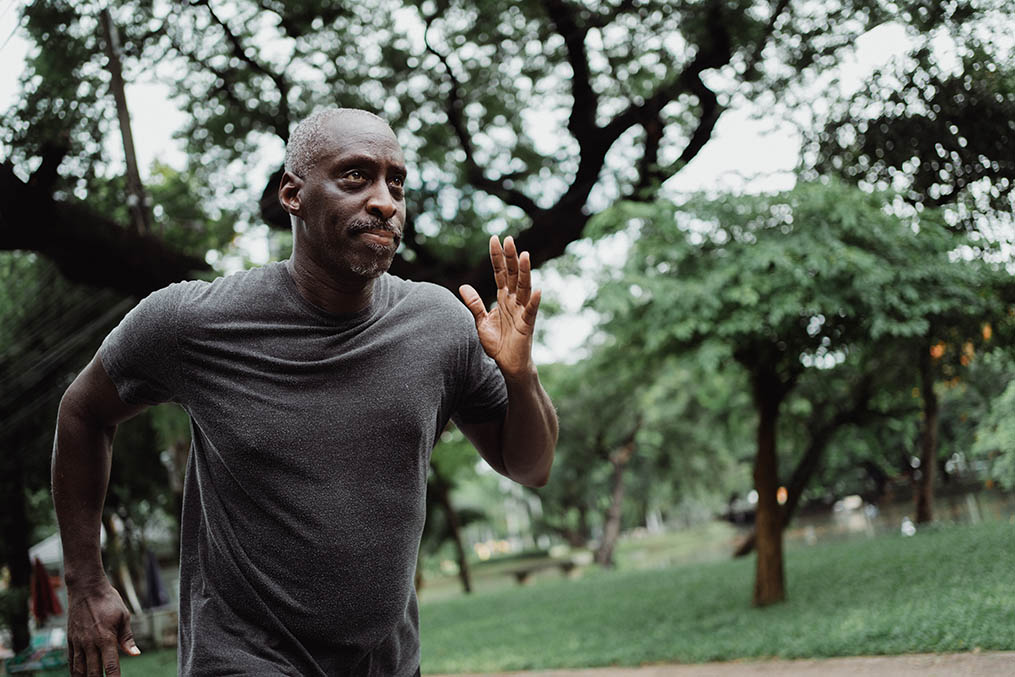Getting started and preparing your body and mind for training
“The miracle isn’t that I finished. The miracle is that I had the courage to start.” ~ John Bingham
The most difficult part of trying to get fitter or train for specific event can often be getting started. You can easily put off taking those first steps by finding endless excuses about why you can’t do it or can’t find the time. It’s important to remember that we all have to start somewhere on any journey and once we get going then we’re soon going to start feeling fitter. But there are some common mistakes that we need be aware of. It’s natural to start exercising too enthusiastically but this not only carries the risk of injury but it can also adversely affect motivation. The other danger is being non-committal, not having a plan and not really taking your exercise seriously enough. Both of these scenarios are not ideal and what we’re really looking for is some steady sensible exercise that can be enjoyed.

However, there are no shortcuts to getting fit. You need to be patient and consistent with your exercise over many weeks and months since this will allow you to gradually improve your fitness but without the risk of injury or losing motivation. It’s also important to remember that our exercise needs to be a positive experience and have some fun along the way because this will help keep you motivated.
You need to have an effective exercise routine and one that’s realistic to your current level of fitness and experience. It’s important that the starting point is at the right level and you can establish a manageable routine where, each week, you can fit in your exercise because if it’s too difficult the chances are that you’ll stop.
If your training is for general fitness then including a variety of activities will provide some good general exercise, using a range of muscle groups and the variety will help your motivation. It also helps if your exercise is balanced with non-impact cardio activities such as swimming, cycling, rowing with some body conditioning exercises, which works a variety of muscle groups, and activities such as Pilates and Yoga which help mobility and help avoid injury.

A good activity for fitness is endurance running but this comes with a word of caution especially if you’re not experienced. Because the action of running involves repetitive impact and each running step produces 3-4 times your body weight of force which affects all your lower body, hips, pelvis and back. If the level of training load is too much for our bodies, then this can result in an injury. It’s therefore important that the training load is correct from the start. The other area that causes problems is if we miss training or think that we can play catchup. The body likes consistency, gradual progression and smart training.
Whatever you’re training for it’s important to be realistic about your exercise routine. It has to be manageable for your current fitness and it has to fit into your life and not be another burden or stress. Avoiding illness or injury means consistent patient training that’s at the right level for you so you can get fit and enjoy it. It’s important to listen to your body and take action. A common mistake is to carry on with your exercise even when you’re really tired or have a slight injury. This just causes more problems of illness or injury which take longer to resolve. It’s important to realise from the start that getting into good shape is a wonderful experience but it will be demanding and it will challenge you physically and mentally but with smart training it will improve your mental resilience and enrich your life. Please remember, harder training isn’t better training. The aim is effective and consistent exercise that your body can cope with and adapt to become better. Injury prevention is much better than injury rehabilitation! Take time to work on your conditioning, core and stretching. If you start to feel run down or under the weather during exercise, take a day off. Remember that one day off won't affect your end goal and you’ll bounce back feeling fresher and more positive.
Having exercise in your life is wonderful and beneficial thing. It helps lift your mood, makes you a more positive person and put a real spring in your step but make sure that you enjoy it.
This article was written by expert running coaches Full Potential.

UK Running Events & Marathon Calendar
If you’re looking to take on a challenge this year, a half marathon (UK) or a big run is perfect! Find out about your big run with our UK marathon calendar.
Take a look
Top Running Apps
Running gets easier, more fun and more effective with the proper app. With so many running apps out there, it can be a minefield trying to find the one that’s right for you. No worries, we’ve broken down the top running apps in a useful list.
Take a look
The easy guide to marathon recovery
Recovering from your marathon is just as important as training for it. Find out how to do it safely and carefully.
Take a look
The easy guide to race day: marathon nutrition and hydration
From drinking water little and often to having a carb-rich meal, there’s a lot that goes into a good nutrition and hydration plan for your marathon race. Here’s what you need to know.
Take a look
How to train for a half marathon
Training for a half marathon can be a daunting task. But don’t worry; we have plenty of tips to make training for a half-marathon a safe and enjoyable experience.
Take a look
How to train for a full marathon
Discover helpful tips and advice around marathon training with BUXTON.
Take a look
Five key pre-run stretches
When running a marathon or just beginning a training session, it’s really important to remember to stretch. Here are our top pre-run stretches to do before you set off and start running.
Take a look